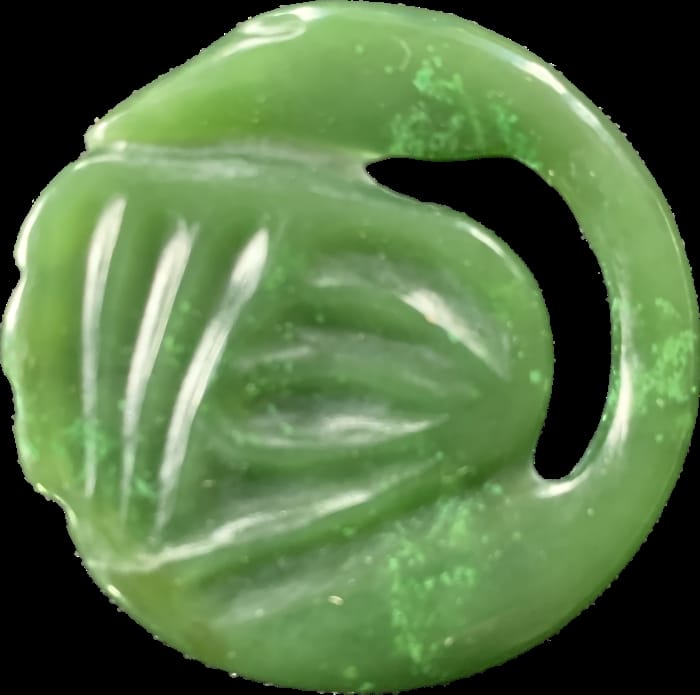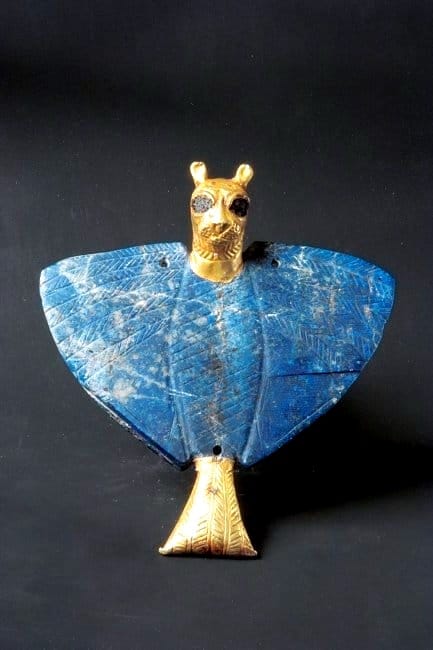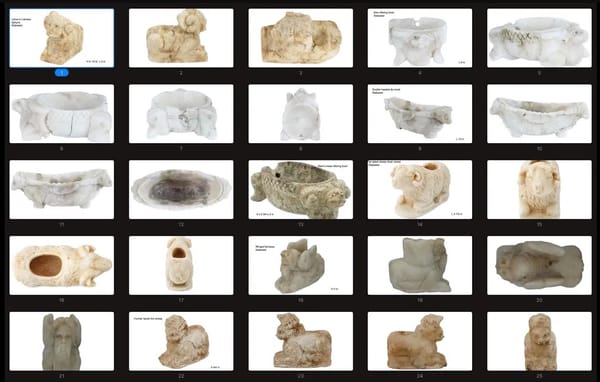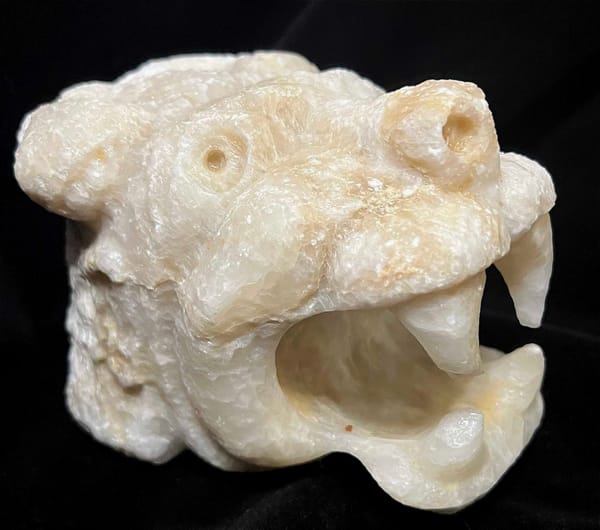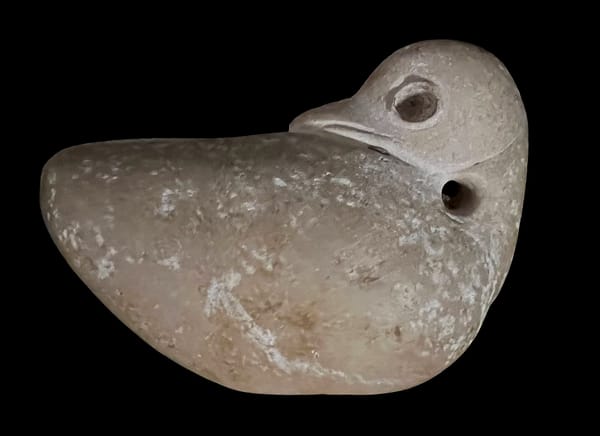Dopamine - The Reason We Do Things
Dr. Josh Stout's thoughts on dopamine and his research into dopamine: the reason we do things.
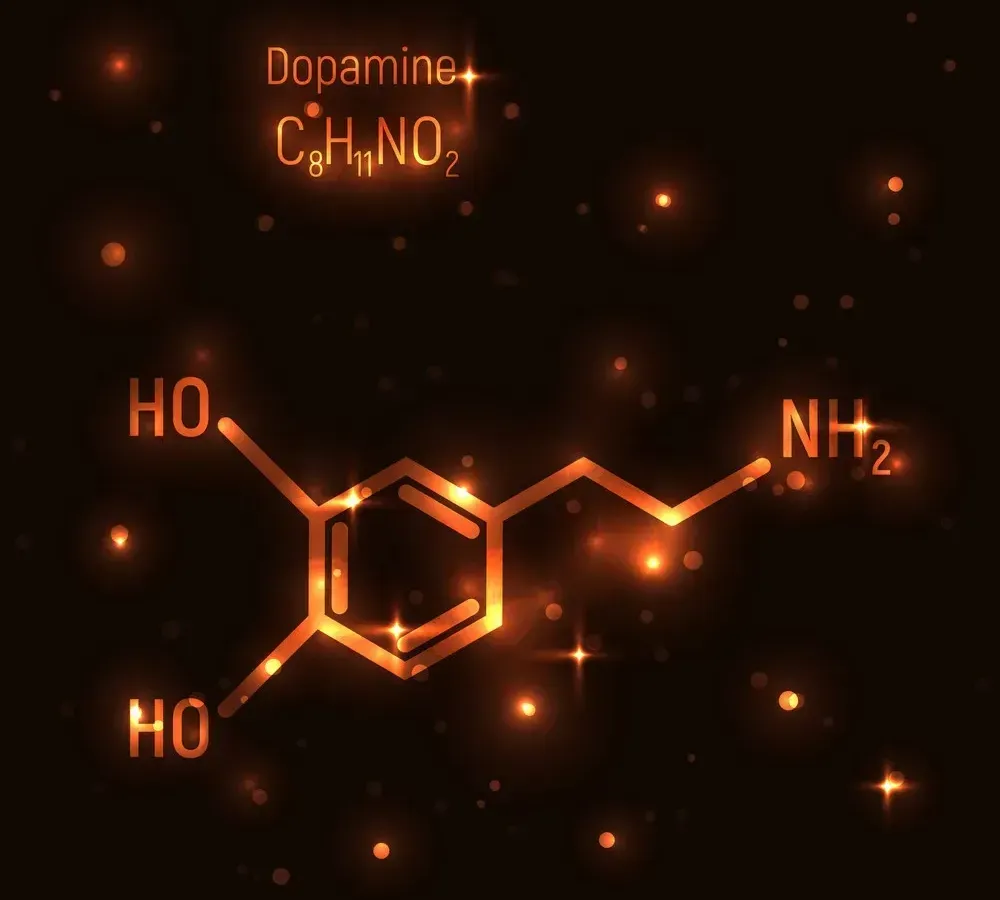
Dr. Stout's thoughts on dopamine and his research into dopamine: the reason we do things.
Please scroll down for links below the transcript. This is lightly edited AI generated transcript and there may be errors.
Eric 0:07
Friday, October six, Episode four. How are you doing?
Dr. Stout 0:12
Good, good. Hi, this is Dr. Stout. Continuing where we left off, but I'm taking a bit of a tangent, so we were talking about the growth of the brain and imagination and abstract thought and language and art and all of that sort of interconnected aspects of human evolution. And I wanted to go into a little bit of my own research, which is on dopamine, and I thought this would be interesting because dopamine is sort of the reason we do things. It's it's the goal in our life. It's the reward for what we do. And I want to talk a little bit my own theories on dopamine, which are different from what a lot of the established work on dopamine would claim. So I have some different thoughts on on the subject. So I was interested in looking at dopamine, mostly because I have very little funding and I wanted to have something that I could just try out. And dopamine is relatively inexpensive and I had a bunch of crayfish in my lab, so I wanted to see what would happen if I gave dopamine to crayfish. This isn't something that I was a, you know, major, major grant or anything. It was just sort of a fishing expedition in that I was just trying something out to see what would happen. And all the literature agreed. It all said the same thing, that dopamine is a stimulant. Dopamine is the sort of active ingredient in things like cocaine or nicotine or caffeine or basically all methamphetamine. All all the stimulants are, in everyone's opinion, dopamine. And so they are dopamine. Well, so here's the thing. Dopamine cannot be given directly to a mammal because we have a brain blood barrier. If you take dopamine, it doesn't get to your brain. And so what we do to get that good feeling from dopamine, the reward is we take dopaminergic drugs, drugs that generate dopamine in the brain. And so it's already in the brain when it's generating the dopamine. And that makes us feel good. And those that's what makes us addicted to these drugs. So all.
Eric 2:19
Of those drugs that you mentioned caused us to to generate the dopamine.
Dr. Stout 2:25
In some way. In some way. They sometimes they do it in different ways. But yes, we we end up with more dopamine in the brain and we feel great. And so I thought that I would be giving dopamine to my crayfish. And it'll be interesting because as far as I could tell, no one had ever done this. They done it with rats, they done with a bunch of different things, but they hadn't tried crayfish. And so it was just sort of a fishing expedition, you know, low level science. Let's try something. And so I gave the dopamine to the crayfish, and the crayfish slowed down everything, said they should speed up, but the crayfish slowed down. So I said, okay, let's try that again. Clearly, I'm not doing this right. And I tried it again and I tried it again. I tried a different species of crayfish, and still, every time I gave it to them, they, they, they moved more slowly. So I was just I was just looking at them walking over a grid after I'd done some things to get them to walk over a grade. It's really actually hard to get crayfish to walk around. They either want to hide or they want to run the whole time with no, no differences. So I had to get them calm, but not too calm. But anyway, I figured out how to do all that. Then I gave them the dopamine and they slowed down and I could compare it without the dopamine. They were faster and so, you know, the first stuff I started doing was, you know what? What make them move around faster. So I just tried some very simple things. I know crayfish like food. So I took the water that filtered through some food and I gave it to the crayfish, and that definitely made them move around faster. But again, even in the present when I added dopamine, even the present presence of food filtrate, they'd slow down again. So then I wanted a lot more data on the crayfish. I just couldn't get enough crayfish to get really good statistics. So I started working with much smaller shrimp that breed much faster called cherry shrimp, and I was able to get a ton of data. Same results every time I gave it to them, they slowed down. So why would this be? I had to come up with a sort of new hypothesis. I thought I was dealing with a stimulant and I was clearly not dealing with a stimulant. It's possible that crayfish are just unlike all other organisms, but that didn't seem true. Or all crustaceans are unlike all other organisms that didn't seem likely. So I wanted to just sort of think about this for a little bit. And I realized that because there was no brain blood barrier, all of these stimulants were being given to organisms as a collection of different I different drugs essentially that could have different effects. And one of the things that all of these stimulants also have in common is epinephrine. So basically adrenaline. And I do not claim that adrenaline is not a stimulant. It's something I'm going to be working with soon. So that's sort of a direction I'm going. But I had to figure out what was happening. Why would people think of something as a stimulant that was really not a stimulant? Was was the opposite of that was is in some way inhibitory. And I realized that what people had done is they had mistook the nature of a reward and we think of a reward as a stimulant. A reward is what makes you want to do something. But if you think about the donkey chasing a carrot tied to a stick, if you actually give the carrot to the donkey that the donkey stops chasing that carrot, it's sort of I told my students, it's like a grade. You're trying for the grade. The A is your reward. But if I give you the A at the beginning of the class, you all slow down. And so people have been thinking about rewards in the wrong way. They've been thinking about rewards as something that causes you to do something. And then a lot of the research out there, I'm not saying any of the researchers had done anything wrong. All of their research was correct, but I think they've been misinterpreting it. So the classic stuff that's done on, on on rats, they would give dopaminergic drugs. They would see them become stimulated and then they would block that. They would use Haloperidol, Haldol, the antipsychotic drug. It blocks all dopamine receptors and they would watch the rats become catatonic and the rats would just lie there flat. And so in my model, this was because they no longer had anything to strive for, right? There was nothing in their life worth doing, anything not even standing up because they no longer had the option of getting an A right. So you tell the kids, none of you are going to pass this class no matter what you do. They're also not going to do any work right. So what happens if I then give them a little bit of that thing? They want just a tiny, tiny bit. The rat's going to get up or at least do something. So what these researchers did back in the late eighties was they put a little bit of cocaine in some water or a little bit of sugar in some water, put it directly into the rat's mouth and watched the rat bother to suck it down. So there was a tiny, tiny bit of a reward. And they said this means that the reward is not the same as the thing that makes them want to suck. The reward is actually a stimulus, and it's a measure of so the dopamine is a stimulus and it's what they call a salience measure. It's a measure of the value of the thing you're going to get at some later date. And so dopamine is is the thing that tells you you have a carrot in front of you, but is not itself the carrot. And to me, this seemed a rather magical. Yeah it's it reminded me of of sort of the Ptolemaic universe where they start adding epicycles to things and they're coming up with, you know, William of Ockham, Occam's Razor. He said that you shouldn't multiply entities. What he was talking about was angels. How many angels do you need between you and God? You need to keep multiplying angels so you can talk to God. Probably not. So we shouldn't multiply entities. This seemed like they were multiplying entities that they were going against Occam's Razor. Now sometimes outcomes are wrong. Sometimes the complex explanation is true, especially in things like, you know, neuroscience, where things are very, very complicated. Already the brain has many, many feedback loops all acting on each other. It's very difficult to tease apart cause and effect. One reason I really like working with crustaceans, crayfish, everything is very direct, no brain blood barrier. I can put the dopamine in and they respond to it instantly. So the the the model out there was that dopamine was a measure of salience. It was stimulatory. The more salience something had, the more you would want it. So the more dopamine you encountered in relation to it, the more you would want that thing.
Eric 8:48
But that thing was always going to be a future thing. It was not...
Dr. Stout 8:51
Or it was something else. It wasn't dopamine, and I haven't quite figured out what they're trying to say. It was. It was the cocaine or the sugar or the thing they put in the mouth that made the rat happy. But it wasn't the dopamine itself, because their reasoning was if you blocked all dopamine with Haloperidol and the rat is lying there flat on the ground, it wouldn't look happy when you put cocaine in its mouth. I'm reasoning that it would look happy when it put cocaine. It's not because suddenly it's getting a little bit of that dopamine it wanted. And under those circumstances, dopamine will be slightly stimulatory in that you're finally getting that thing you thought you couldn't get before. Similar experiment in fruit flies. So something that actually doesn't have a brain blood barrier is a an invertebrate, you know, not exactly a crustacean, but very closely another arthropod, something with a jointed exoskeleton. And what they did is they made fruit flies that didn't express dopamine. Now, if you remove all dopamine, the thing's dead. So it had a tiny bit, but it was a what they called a dopamine knockout fruit fly. So it wasn't expressing any dopamine. And these these fruit flies weren't flying around doing nothing like the rats were. They put a tiny bit of sugar water with some dopamine under the fruit flies and the fruit flies started drinking the sugar water with the dopamine in it. And so they said this confirmed what they'd seen in the rats that they were the fruit flies were acting exactly as the rats were. Dopamine was not a reward. Dopamine was something that measured. The reason you would bother sucking was because you were now getting some dopamine. And so dopamine was a stimulant and it was all just a measure of reward. I find all of this confusing and too much. Okay. A reward is the measure of reward. If I want to know how much money I'm going to get, it's the pile of money, right? The A is the measure of the reward, but it is not separate from the thing you're trying for. The actual grade is the thing you're trying to get. Dopamine is the actual reward. You measure the reward by how much dopamine you get. Now, there's some interesting things. You can get more dopamine when you get an unexpected thing that's happening to you. So if you meet someone beautiful who you really, really like for the first time, your brain is going to release a bunch of dopamine. You meet them a second time, your brain's going to release a slightly less dopamine, but you're going to want to meet them that second time because of that first time when you got that reward. So dopamine tells you what to do. It gives you a little bit of an extra sort of extra credit if you get something unexpected happening. But it's the measure of the things you want to do and our brain can't tell the difference. So it'll give us dopamine for almost anything. Our primate ancestors would have seen fruit ripening on a tree. That fruit would have turned orange or red signaling. Let's go get that fruit that those are those are colors that will stimulate some dopamine. So we're often stimulated by flashing lights and bright colors. This is what all the video games do to give us rewards and make us want to come back and do it. This is why we do things that are addictive. Give us dopamine. And part of the reason why many things online can be addictive is the the fast editing, the flashing lights, the bright colors. All of these things stimulate our brain, give us rewards and make us want to come back. I'm not arguing with any part of that particular model. I'm just saying that I think they're thinking about these things wrong, that dopamine is exactly what we've always thought it was. It's a reward and you give something the reward, they slow down, but you prevent all rewards and they also slow down and you give a little bit of a reward back again and things might start moving again because now they have an incentive. They know what they're going to try for. So again, it's the carrot on the end of the stick. You give them the carrot, they don't they don't chase it anymore. But if there's no carrot there, they also don't chase it. Right. So dopamine is the the actual physical goal. And all of my research seemed to to to to go with that really well, I was able to isolate at least one of the causes for stimulation and crayfish. Right. I started off with looking at food, filtrate. I then found out it's the amino acid glutamate that really makes them run around. And this is glutamate. It's interesting. It's almost the only thing that does go through a brain blood barrier is the number one stimulatory neurotransmitter in the brain. And it's definitely the signal for food in in crayfish. And it's also the signal for protein in our in our in our tastes. Right. So we only have a few tastes, you know, salty, savory.
Eric 13:29
It passes through the blood.
Dr. Stout 13:31
Brain blood barrier. Yeah. So, so if you eat glutamate, it will go into your brain and is having an effect as a neurotransmitter. I had not really realized this until I started doing this research. And so glutamate for free for the crayfish or the shrimp is a signal that they there's there's food somewhere in the water. And so they run around. I give them dopamine, they slow down again. I block that dopamine with haloperidol, they speed back up again. I suspect if I tried longer term studies, if I gave them Haloperidol for an entire day, they wouldn't speed back up again, right? They would just stay slowed down because now they have no reward. I think that part of what I'm doing is I'm working with undergraduates. No one has any patients. We have no funding. So I do 20 minute experiments. And so in those 20 minutes, if I blocked dopamine, all the shrimp don't realize they've lost the carrot. They just think that the carrot is hidden somewhere. So they have to keep running around looking for it. I think if I did it for 24 hours, they would they would run out of energy over time, you know? And so these are some directions I want to go with my future research. I particularly want to look at caffeine. Caffeine is a nice legal drug that I can work with. And I've actually found research out there that says caffeine is a stimulant in shrimp. And I'm like, aha! And they said, it's a stimulant in shrimp because of dopamine. I said, You're wrong. So I can I can I can demonstrate this because I can block I can block epinephrine, I can I can use beta blockers and alpha blockers to block all the receptors for the adrenaline related drugs, the neuro epinephrine, all of these things. I can block dopamine and I can give both these things. So I can give caffeine on its own. I can give caffeine with dopamine blocked. I can give caffeine with epinephrine blocked, and I can give these things separately so I can show that dopamine is not a stimulant on its own. Epinephrine is a stimulant on its own. And then I can show caffeine working with and without these things. So that's sort of my future direction. I'm planning that next semester. I'm very confident in what I will find, because I did, you know, a couple hundred shrimp and many, many crayfish looking at them with dopamine and haloperidol. And definitely it is it is inhibitory. And I also have some other hints on the model using dopamine as a measure of, as they say, salience. I call it teen salience. Teen Salience can't explain all of the available observational data out there. It certainly works in their rat models because of how I described it. Right? You give them Haloperidol the flat, you put some cocaine in their mouth, I bother to bother to suck it and look happy about it. That's like their whole model is based on. If you think about ADHD, ADHD is classified as a dopamine deficiency because of my work with glutamate, I wonder if it's more a glutamate surfeit, right? So it might be neurotransmitter is activating the brain too much rather than I not having enough dopamine. But the model works for me, right? If you have more dopamine, you are more focused because you're not seeking something all the time. You're not looking for that carrot. If you have a little bit of that carrot, you're going to calm down a little bit. And so that would actually align with the ADHD model people who have attention deficit to deficit disorder are always seeking rewards. They have a tendency to seek dopamine providing drugs. They have a tendency to do thrill seeking. They often make a lot of bad decisions because they're always looking for that next reward. And so the model is that they don't have enough dopamine. I'm not positive this this model is entirely right. I think it might be too much glutamate, but that's a separate issue. But certainly more dopamine would help, right? They would they would calm down. So how do we treat ADHD? We give people essentially amphetamines. We give amphetamines to people who are hyperactive to calm them down. How does this make any sense? It makes sense because the dopamine calms them down. If they now had a reward, the epinephrine portion is still stimulating. If you are if you have ADHD and you are taking a an amphetamine, you can have a hard time eating because that's what stimulants do. Your heart is going to race quickly because that's what stimulants do, particularly for epinephrine. You're going to have a hard time sleeping because that's what stimulants do. It's not that the amphetamine has suddenly magically for you not being a stimulant. You as as someone with ADHD certainly are being stimuli aided by amphetamines.
Eric 18:13
So according to your theory, then what would be a better treatment?
Dr. Stout 18:17
That would be hard.
Something that that that that slows down the amount of glutamate in the brain providing dopamine in some way separate from the stimulatory effects of amphetamines would be another possibility. You know, amphetamines are not the only way to get I don't mean to the brain, it's just that in general, dopamine is, you know, found in stimulants. But there are a few other things. Marijuana, for example, is slightly less stimulatory but does provide dopamine. It just has its own issues, memory, etc. But too much dopamine actually does have problems. Okay. So this is why, for example, methamphetamine use is often associated with various kinds of psychosis. Dopamine leads to schizophrenia. Schizophrenics have way too much dopamine in their brain. And so you treat schizophrenics with something like haldol, haloperidol, classic, you know, One Flew Over the Cuckoo's Nest. People don't stand there, don't say anything, don't move, because they've been given this dopamine blocking thing and they have no no joy in their life. We've gotten a little bit better with this. There are a few selective antipsychotics that block some dopamine somewhere in the brain, but not other places. So it's been a little bit adjusted. But these are these are ways that we've figured out to lower agitation in, you know, patient patients who are in, you know, mental distress. Haloperidol will work that way because it's often too much dopamine. So these are what we see often with things like amphetamines and and with with cannabis as well. Typically the side effects include paranoia. This is a side effect that is caused by too much dopamine. So these these drugs have what you would expect in terms of, you know, classic effects, as predicted, They work as rewards. They they they make us want them more. And and the model fits for most of it. Right. So that dopamine is in fact a measure of a reward. But that reward is the dopamine. So their model kind of works for a lot of situations, but I don't think it explains ADHD people. Right. It doesn't explain why it would make you focus more when you're given an amphetamine. It doesn't it doesn't explain the entire model. Right. Why why would hyperactivity be defined as a dopamine deficiency? If we think dopamine causes activity? Right. Hyperactivity would be more of that thing. What happens when you have too much dopamine is you end up with with with psychosis, which is something else entirely. So not enough dopamine. We run around looking for things too much dopamine. We become paranoid. But if we can nail it just right, then we're happy. And so this is this is this is you know, I'm in agreement with the original model of dopamine. The dopamine is a reward. It's the reason we want to do things. And our brain can't tell the difference between one thing of dopamine and another. Right? So if we meet the person we love, we get dopamine. But if we want to invite someone on a date, on a date, you take them out to dinner. The person can't tell the difference between the dopamine provided by the dinner and the dopamine provided by the sparkling conversation. Right? So our brain just eats all this stuff up, right? We were evolved to be attracted to bright colors and things that would give us food as as primates and monkeys in the trees. So we give each other a bunch of flowers when we go on a date. The bright colors of the flowers provide dopamine to the brain, signal those things that are attracted to these colors. And again, you can't tell the difference, but so you now like the person who gave you the flowers because the flowers gave you a reward. And our brain can't tell the difference between the person and the flowers. Same thing with perfume. So, you know, I was just talking to my students about this flower is have a scent to attract a pollinator. Those scents were originally derived from insect sex pheromones, and the flowers didn't want to just have those particular sex pheromones, but they wanted to attract males and butterflies. So they modified slightly moth and butterfly insect sex pheromones and made a perfume out of it to attract the moth and butterflies to come as pollinators. We then take that same thing that's been evolved co-evolved between animals and plants to attract animals. And we put that perfume on ourselves. When someone comes and smells it, they get a little dopamine reward and they say, Oh, I really like you. And what they really like is the scent of scent of something tasty or the floral smell that is originally designed as a as a plant manipulation to cause a dopamine response in a in a moth. And so all across the the the the the animal kingdom, dopamine is is is used as as as incentives, as ways to make things happen. Plants are constantly manipulating these things. They found small amounts of caffeine in nectar, again, rewarding things to come back. Dopamine is associated with memory. They think that when bees find a little bit of caffeine in the nectar, they'll remember that plant over other plants because now they've been given a little bit more of the reward. I think there may well be some interactions with glucose, but that's complicated. So some things are themselves attractive. Like do glucose is the number one energy molecule for all cells in all things. So I think glucose maybe is even more primary to as, as, as, as a as a thing we want than even dopamine is. But again, dopamine would be the measure of how good that glucose was. Right. So if you get a piece of candy immediately, your brain is is is is releasing some dopamine and saying, do that again. That was great. Right? And then you'll want that even more if the candy is brightly colored. Right. So all all of these things are related. We were always seeking these these various rewards. We we're using them in our lives all the time. You know, the fashion industry talks about dopamine colors. They're talking about red and yellow and orange, the things that would signal a ripe fruit to a primate. There are these these are our co-evolved heritage of rewards that plants have manipulated into our brains. If we didn't if we had not learned how to respond to the bright colors of ripe fruit, we would have starved. So we responded to those bright fruit fruits The plants wanted us to spread their seeds, right? They wanted us to eat the orange and poop out the orange seeds so the plants co-evolved with us. They made better colors when we ate those things, they got they did better because they spread their seeds. If we didn't see those colors and we didn't get a reward from it, we didn't eat the food. And so we didn't didn't survive. So this was a coevolution of of a system of rewards that had already pre-existed. And that's why that's why I think that it legitimate to be working with crayfish and crustaceans in general, because I think that the dopamine is so basic to the way all life has evolved that I looking at an entirely nother branch of the animal kingdom other than other than mammals, I think is useful. And I think what I have done is I've come up with a simpler model that explains how dopamine works, that is is is better than the existing ones. And it explains more of of the observed, you know, the universe around us. Fascinating. Well, thank you so much. All right. So that's my research. I will talk again next week.
Eric 26:08
One bit of your research.
Dr. Stout 26:11
Yes. Well, that's that's what I'm focusing on at this particular moment in time.
Eric 26:14
All right. Very good. Well, thank you very much. We'll see you next time.
Dr. Stout 26:19
Excellent. Thank you.

Theme Music
Theme music by
sirobosi frawstakwa

